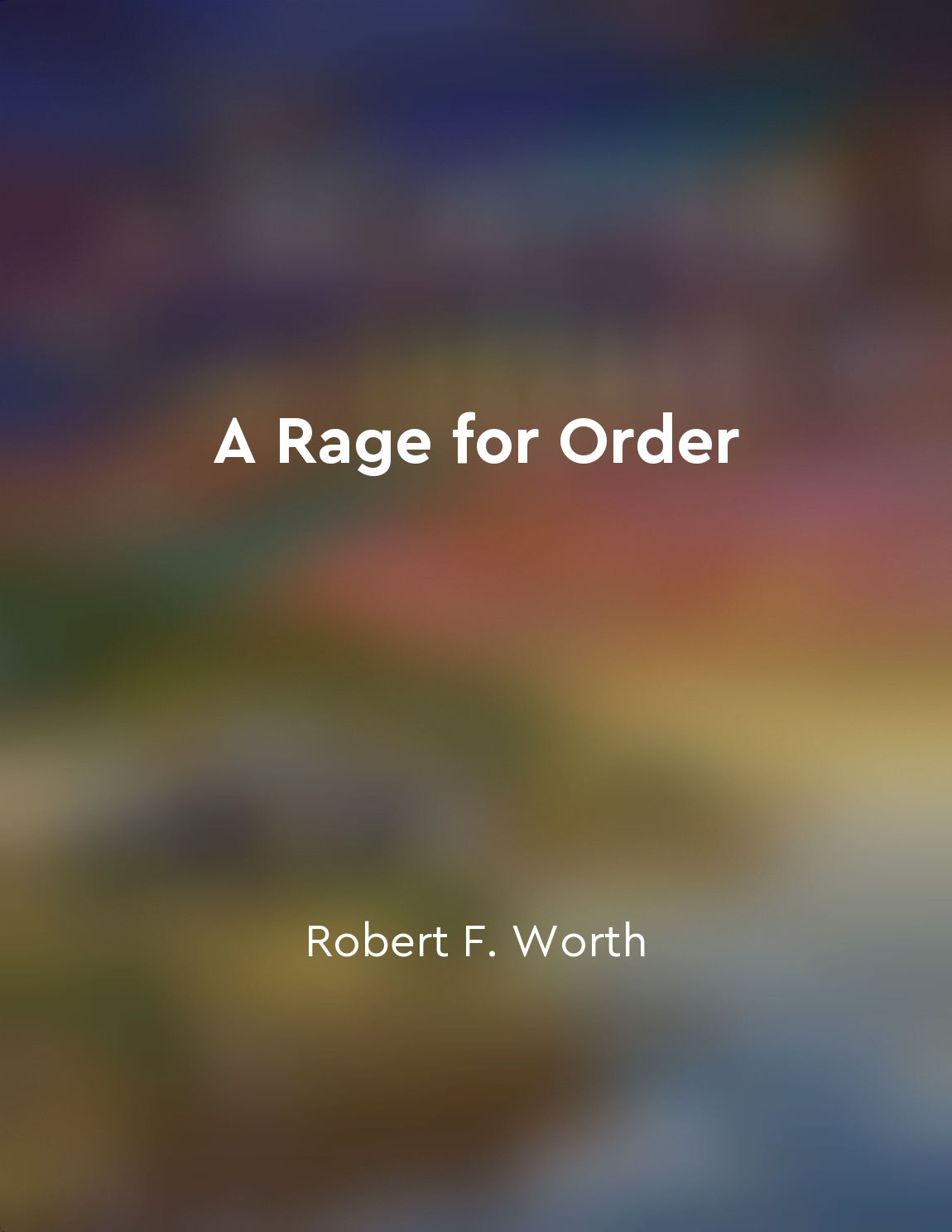Oppression breeds resentment and rebellion from "summary" of Common Sense by Thomas Paine
When people are oppressed, when their rights are trampled upon and their voices silenced, they naturally feel a deep sense of resentment. This resentment festers within them, growing stronger and more intense with each passing day. They begin to question why they are being treated in such a manner, why they are being denied the very freedoms that are rightfully theirs. As this resentment continues to build, it eventually reaches a breaking point. People can only tolerate so much before they feel compelled to take action, to rebel against the forces that seek to oppress them. This rebellion is not born out of a desire for chaos or violence, but out of a deep-seated need for justice and freedom. History has...Similar Posts

Territorial disputes fueled violence
One of the key drivers of violence in the Middle East is the long-standing territorial disputes that have plagued the region fo...

The first World War had farreaching consequences
The Great War, which began in 1914 and ended in 1918, had effects that extended far beyond the battlefields of Europe. The conf...
The party dictates reality to its citizens
In the totalitarian state depicted in "Darkness at Noon," the party holds absolute power over its citizens. Through propaganda,...

Ideologies influence political decisions
Ideologies shape the way we perceive the world, providing us with a set of beliefs and values that inform our political decisio...
The will of the people can dismantle tyranny
The essential idea put forth in this work is that the power of a tyrant relies solely on the obedience of the people. Without t...
Socrates explains the concept of the allegory of the cave
In The Republic, Socrates delves into the concept of the allegory of the cave to illustrate the journey of the soul towards enl...
The rule of law is crucial for maintaining order
The idea that the rule of law is essential for the preservation of order is a fundamental principle in democratic societies. Ac...
Punishment is a form of social conditioning
The use of punishment within society serves as a means of conditioning individuals to conform to established norms and rules. P...
Lessons learned
Throughout the tale of 'The Prince and the Pauper', one can discern a recurring theme of growth and self-discovery. The charact...
Analyze the impact of colonialism on indigenous populations
The encounter between colonial powers and indigenous populations throughout history has had far-reaching consequences that cont...
